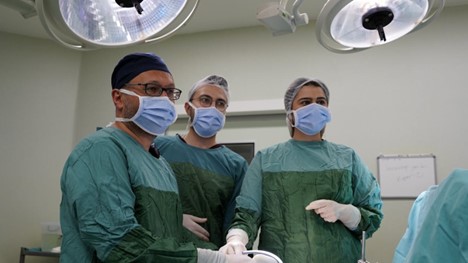Could Your Stomach Predict Parkinson’s? The Upper GI and Brain Disease Connection
Parkinson’s disease is primarily known as a brain disorder, causing symptoms like tremors, stiffness, and difficulties with balance and coordination. However, emerging research suggests that the disease might begin far away from the brain — in the gut. Recent studies have drawn an intriguing connection between gastrointestinal (GI) health and Parkinson’s, with some experts even asking: could your stomach predict the onset of this neurodegenerative disease?
The Gut-Brain Axis: A Two-Way Street
The gut and the brain are closely linked by the gut-brain axis, a communication network involving the nervous, endocrine, and immune systems. One of the primary components of this connection is the vagus nerve, which acts as a superhighway for signals traveling between the brain and digestive system. This intricate relationship is essential for maintaining homeostasis, but it also opens the door to disease transmission.
The Role of Alpha-Synuclein
One of the hallmarks of Parkinson’s disease is the buildup of a misfolded protein called alpha-synuclein in the brain. These abnormal proteins form clumps known as Lewy bodies, which interfere with nerve cell function and are thought to contribute to the characteristic symptoms of Parkinson’s.
What’s fascinating is that alpha-synuclein may first accumulate in the gut before making its way to the brain. Research has shown that misfolded alpha-synuclein proteins have been found in the enteric nervous system (the network of nerves governing the GI tract) of people with Parkinson’s, sometimes years before motor symptoms appear.
This finding has led to the hypothesis that Parkinson’s could start in the gastrointestinal system, particularly in the upper GI tract (the stomach and intestines), and then travel to the brain via the vagus nerve.
Constipation and Other GI Symptoms: Early Warning Signs?
Gastrointestinal issues, particularly constipation, are common in Parkinson’s patients and may be one of the earliest non-motor symptoms. Some studies suggest that people who develop Parkinson’s report GI symptoms up to 20 years before their diagnosis.
Other potential GI-related symptoms include:
- Bloating
- Nausea
- Acid reflux
- Difficulty swallowing (dysphagia)
These symptoms, especially when chronic, might serve as early warning signs of Parkinson’s, even before the classic motor symptoms appear. If the disease does indeed begin in the gut, it could offer a window of opportunity for earlier detection and intervention.
Inflammation and the Microbiome’s Role
The gut microbiome, the community of trillions of bacteria and other microorganisms living in your digestive tract, plays a critical role in maintaining health. Research has shown that people with Parkinson’s often have an imbalance in their gut microbiome, known as dysbiosis.
Dysbiosis can lead to chronic inflammation, which may contribute to the misfolding of alpha-synuclein and its subsequent spread to the brain. Inflammation in the gut could be an early trigger for the disease, making the health of your microbiome a key factor in Parkinson’s risk.
Can We Use GI Symptoms to Predict Parkinson’s?
While there is no definitive test that links GI symptoms directly to Parkinson’s disease, growing evidence suggests that early changes in gut health may be predictive of the disease’s development. Several research studies are underway to investigate whether GI health, particularly in the upper digestive tract, can be used as a biomarker for early Parkinson’s diagnosis.
What Can You Do to Protect Your Gut and Brain?
Maintaining a healthy gut may be one way to reduce your risk of developing Parkinson’s disease. Here are a few tips to keep both your digestive system and brain healthy:
- Eat a balanced diet rich in fiber – Fiber supports gut health by promoting healthy bowel movements and feeding beneficial bacteria.
- Incorporate fermented foods – Fermented foods like yogurt, sauerkraut, and kefir contain probiotics that help maintain a healthy microbiome.
- Stay hydrated – Drinking enough water helps prevent constipation, which is a common early sign of Parkinson’s.
- Exercise regularly – Physical activity improves both GI function and brain health, potentially reducing your risk of Parkinson’s.
- Manage stress – Chronic stress can negatively affect both your brain and digestive system, making it important to incorporate relaxation techniques into your daily routine.
See the full scientific article from The Washington Post.
By understanding the early signs, such as GI symptoms and gut microbiome health, researchers hope to find ways to detect Parkinson’s earlier and, perhaps, slow its progression. Until then, prioritizing gut health may offer benefits for both your digestive system and your brain.
Enhancing our daily routine with Florassist GI supplements can significantly contribute to our well-being. At Asher Longevity Institute, we provide access to this exceptional supplement. Florassist GI supports the growth of beneficial bacteria, optimizes digestion, and effectively eliminates harmful bacteria in the gut.




